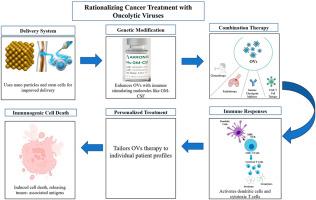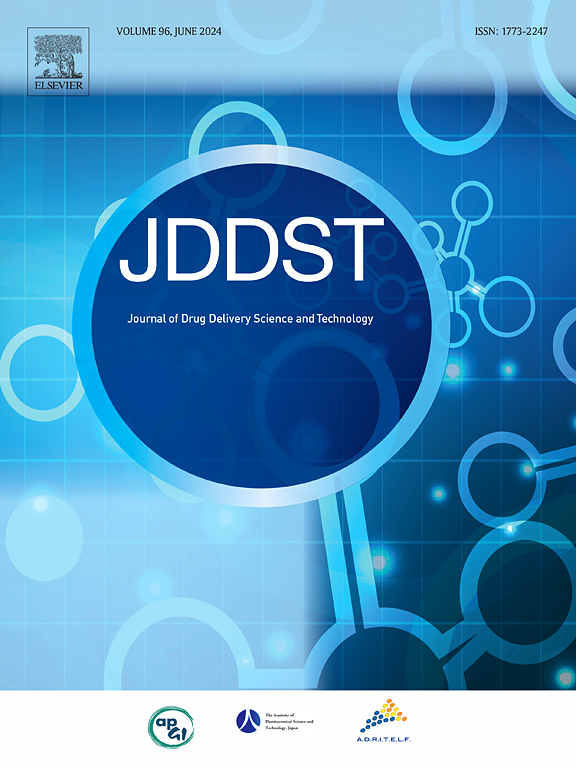用溶瘤病毒革新癌症治疗:从肿瘤靶向和代谢重编程到免疫激活和精确递送
IF 4.9
3区 医学
Q1 PHARMACOLOGY & PHARMACY
Journal of Drug Delivery Science and Technology
Pub Date : 2025-09-17
DOI:10.1016/j.jddst.2025.107543
引用次数: 0
摘要
溶瘤病毒(OVs)已成为一种有前途的免疫治疗药物,能够选择性地杀死肿瘤细胞,同时保存健康组织。基因工程的进步已经通过采用免疫刺激分子(如GM-CSF)并将其与检查点抑制剂等其他治疗方法相结合,提高了OV的疗效。除了直接溶瘤外,OVs还诱导免疫原性细胞死亡,释放肿瘤相关抗原,激活树突状细胞和细胞毒性T淋巴细胞,从而增强抗肿瘤免疫。尽管具有潜力,但肿瘤内渗透有限、免疫逃避和快速清除等挑战仍然是重大障碍。新的递送策略包括纳米颗粒封装、间充质干细胞载体和囊泡系统,以提高稳定性和靶向性。将OV治疗与独特的肿瘤特征结合起来的个性化方法可能进一步提高治疗成功率。克服这些障碍可以强有力地确立溶瘤病毒治疗作为癌症免疫治疗的一种进化方法,并强调需要继续研究和精心设计的临床试验来充分认识其潜力。本文章由计算机程序翻译,如有差异,请以英文原文为准。

Revolutionizing cancer treatment with oncolytic viruses: From tumor targeting and metabolic reprogramming to immune activation and precision delivery
Oncolytic viruses (OVs) have emerged as promising immunotherapeutic agents capable of selectively killing tumor cells while saving healthy tissues. Advances in genetic engineering have enhanced OV efficacy by embracing immune-stimulating molecules, like GM-CSF and combining them with other treatments such as checkpoint inhibitors. Beyond direct oncolysis, OVs induce immunogenic cell death and release tumor-associated antigens that activate dendritic cells and cytotoxic T lymphocytes, thus boosting antitumor immunity. Despite their potential, challenges such as limited intra-tumoral penetration, immune evasion and rapid clearance remain significant barriers. New delivery strategies including nanoparticle encapsulation, mesenchymal stem cell carriers and vesicle-based systems are under observation to improve stability and targeting. Personalized approaches that align OV therapy with unique tumor profiles may further enhance therapeutic success. Overcoming these hurdles could strongly establish oncolytic virotherapy as an evolutionary approach in cancer immunotherapy and underscoring the need for continued research and well-designed clinical trials to fully recognize its potential.
求助全文
通过发布文献求助,成功后即可免费获取论文全文。
去求助
来源期刊
CiteScore
8.00
自引率
8.00%
发文量
879
审稿时长
94 days
期刊介绍:
The Journal of Drug Delivery Science and Technology is an international journal devoted to drug delivery and pharmaceutical technology. The journal covers all innovative aspects of all pharmaceutical dosage forms and the most advanced research on controlled release, bioavailability and drug absorption, nanomedicines, gene delivery, tissue engineering, etc. Hot topics, related to manufacturing processes and quality control, are also welcomed.

 求助内容:
求助内容: 应助结果提醒方式:
应助结果提醒方式:


